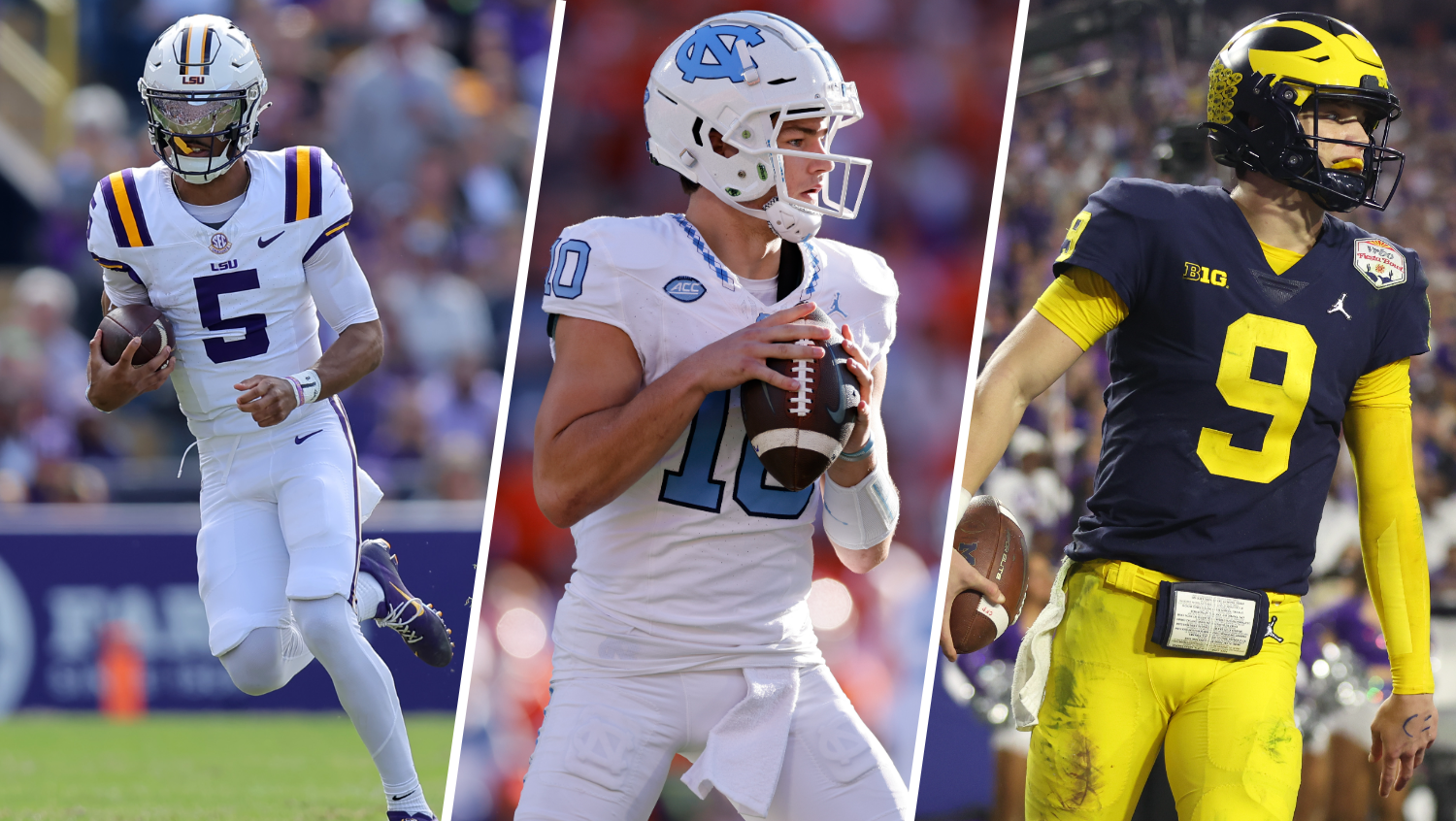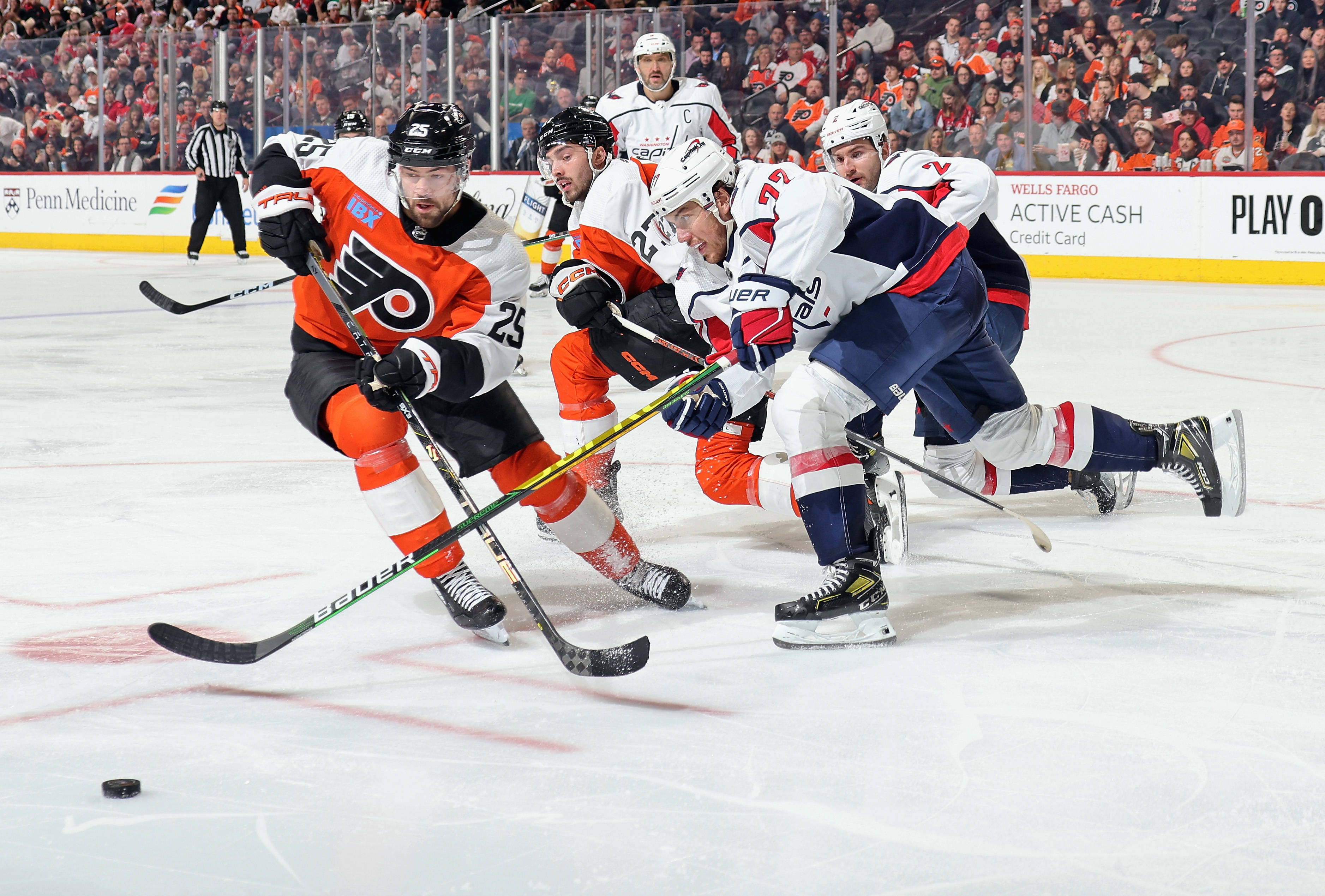During Adam Oates' introductory press conference in June 2012, Washington Capitals General Manager George McPhee ran through the checklist of attributes that he was looking for in a head coach and found in the newly-minted Hall-of-Famer:
"Intelligence." "Upside." "Experience." "Commitment."
Yet, there is one quality that McPhee did not mention last summer -- though it has been regularly implied since -- that may be more important than anything else: balance.
No team in the NHL had a more tumultuous 2011-12 season than the Capitals, who had to make the radical switch from the lenient Bruce Boudreau to the hard-line Dale Hunter, polar opposites both systematically and culturally.
At season's end, Hunter elected not to return, leaving Oates with the unenviable task of steadying the course of a rudderless ship during a lockout-shortened season.
Through the first half of the season, however, it is apparent that the even-keeled Oates is the happy medium between Boudreau and Hunter, the calming influence that could finally provide a franchise in flux seemingly mired in a perpetual identity crisis with much-needed stability.

(Photo credit: Patrick McDermott/Getty Images)
Capital Games
Capital Games is your source for all Washington-area sports.
To fully understand Oates' situation, one must look back at the coaches who came before him, beginning with the evolution of Boudreau.
Boudreau's foray into accountability began in December 2010, when the Capitals' run-and-gun well dried up and he adapted, transforming the team into a more defensively-responsible unit. However, his personality shift was most prononuced at the beginning of the 2011-12 season.
With plenty of regular-season accolades -- four consecutive Southeast Division championships, a Presidents' Trophy as the NHL's best team in 2009-10 -- but no discernible postseason success to show for it (the most recent disappointment coming via a 4-0 dissection at the hands of the Tampa Bay Lightning in the 2011 Eastern Conference semifinals), the Capitals' coaching staff and front office collectively decided that it was time for a change, according to Dean Evason, who served as an assistant coach under both Boudreau and Hunter last season.
"It wasn't just Bruce's idea to change the philosophy or try to change the culture," said Evason, who is now the head coach of the American Hockey League's Milwaukee Admirals. "The entire coaching staff and organization, we all felt that in order for us to have success and obviously hoping that we win the Stanley Cup that things had to change. When you don't have success, you have to find something to change or feel that you're making a change in a positive direction to allow you to have success."
So when Boudreau arrived for the start of training camp that fall, he did so a changed man. No longer was Boudreau an affable players' coach, but a disciplinarian who preached the virtues of accountability. He implemented a strenuous preseason fitness test, scratched Joel Ward for oversleeping and, most notably, benched Alex Ovechkin in the final minute of a one-goal game in November 2011.
Yet, as illustrated by Ovechkin's expletive-filled muttering that was caught on camera, the team's revised mission statement fell on deaf ears. Boudreau's new disposition -- which he later admitted was a mistake -- did not ingratiate itself with his players, who simply tuned it and him out before he was dismissed in late November 2011 after a stretch of 10 losses in 15 games following a 7-0-0 start.
At first, "it was very lackadaisical," said forward Troy Brouwer, who played under Boudreau for 22 games. "Guys were able to do whatever they pleased. There wasn’t a whole lot of accountability. And then when we had a little bit of trouble and there needed to be accountability, it wasn’t received exactly with welcome arms."
In stepped Hunter, who quickly instituted an all-for-one system that forced the Capitals to sacrifice their individual statistics and roles for the greater good, a drastic change from Boudreau's heavy reliance on Washington's superstars. All of a sudden, every player regardless of skill set was responsible for chipping pucks, blocking shots -- and for playing sound defense above all else. Those who adhered -- grinders like Jay Beagle and Matt Hendricks, for example -- were rewarded. Those who didn't watched those who did.
"When you compared [Boudreau] to the hardness of Hunter, it was a world of difference," Brouwer said.
"Dale basically was old school as far as the players," Evason added. "You played hard or you didn't play."
Hunter's blue-collar ethos carried Washington to Game 7 of the Eastern Conference semifinals against the New York Rangers last spring, but as Brouwer admitted, "there were guys that weren’t necessarily happy with the style of play" as their roles were marginalized. Look no further than Ovechkin, who was asked during the Capitals' visit to Madison Square Garden Feb. 17 if he was excited to play the Rangers for the first time under Oates' system.
"Of course," he said. "Probably I’m going to have more ice time than different system."

(Photo credit: Bruce Bennett/Getty Images)
After being formally introduced by McPhee as the Capitals' third head coach in seven months last summer, Oates immediately stressed the importance of communication. It's what he craved as a player, and he said he wasn't about to become a "hypocrite" as a first-time head coach. In the short time that he had before the NHL lockout barred him for contacting his players in mid-September, Oates began to study them on video and call them with tips on how he thought they could improve their respective games.
With no player has that level of communication been more important than Ovechkin. From the moment Ovechkin first met Oates, he felt a level of trust between the two that perhaps wasn't there with previous coaches. The two regularly conference during practices and even correspond via text message.
"First of all, you’ve got to respect them," Oates said last month. "You’ve got to respect who it is, and I do. You’ve got to get his trust, which is second, and when he trusts you, you can try to provide information."
So when Oates recommended to Ovechkin -- who admitted that he felt "trapped" under Hunter -- that the natural left winger switch to right wing as a way to expand his game and provide him with more offensive chances, the captain listened.
Oates' ability to deftly deliver a message enabled the Capitals to grasp his style of play, though, understandably, there have been growing pains as they have had to essentially learn on the fly without the benefit of a long training camp or preseason. Oates' system is an aggressive pressure-based one that allows for offensive creativity through defensive responsibility, more or less a hybrid of Boudreau and Hunter's respective philosophies.
"He’s letting guys play the way that makes them successful – goal scorers need to score, checkers need to check," Brouwer said. "Everyone’s got a defined role on the team now. Nobody’s trying to do too much or too little from what they're expected."
Oates hopes to instill a culture similar to that of the New Jersey Devils, where he served as an assistant coach for two seasons before leaving for Washington. Under team president, CEO and general manager Lou Lamoriello, the Devils' hard-working, accountable and team-first philosophy has endured for decades, despite roster and management turnover.
"You have to have accountability," Brouwer said. "You have to make sure that guys are doing what they’re supposed to be doing and not doing too much extra because that’s when you get yourself in trouble. We put a system in place, we put a culture in place where guys need to just do what they need to do and not more."
Throughout the first two months of the season, the Capitals have lauded their coach's attention to detail, a product of his analytic nature cultivated throughout his playing career, and his ability to relay his message to every member of the roster, regardless of role.
"He knows the game really well and he has his opinion of what he thinks is gonna be the recipe for success," defenseman Karl Alzner said. "If he think it's gonna be defense-first, then he focuses more on that. When he needs to, he can throw in his offensive flair that he has. He's not coaching from a forwards perspective, he's coaching from an upstairs perspective and that's what's great because he doesn't leave anybody out."
As for his personality, Oates doesn't talk as much as Boudreau (who is affectionately known as "Gabby" for a reason), but is far less reserved than Hunter. After every game, whether it is a 7-1 drubbing of the Florida Panthers or a 5-2 loss to the Pittsburgh Penguins, Oates' demeanor is always the same: collected and calculated.
According to Alzner, Oates "mixes talking at you and talking with you really well" and is "not too hard on guys, but hard enough," which comes from him not wanting to completely blur the line between player and coach.
"Bruce was probably the most interactive coach I've ever had," Brouwer added. "You talk to him, you get used to him and you get to be friends with him, but Adam still wants to have that head coach mentality while still talking to you and being a players' coach."
It is that balance and structure that makes Oates the ideal coach for Washington, but there is only so much he can do. Ultimately, his performance will be judged by the performance of his players.
"He's got the right tools to be a successful coach," Alzner said. "It's up to us now."
Follow Adam on Twitter @AdamVingan and e-mail your story ideas to adamvingan (at) gmail.com.



